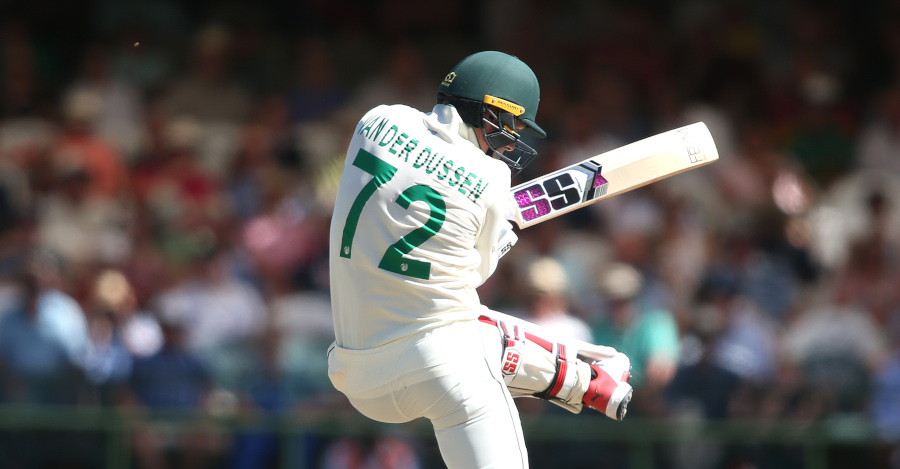When Axl Rose sang, All we need is just a little patience, he wasn’t thinking about Test cricket, but it is sound advice for anyone with aspirations of success in the ultimate format.
Test cricket is a unique sporting challenge, testing a player’s mental endurance, physical stamina and technical skill all at once.
For both batsman and bowler, patience is critical, but it doesn’t stop there. Coaches and selectors need to show patience as well, as do administrators.
On day three of the second Test between South Africa and England, Dom Sibley gave cricket fans a rare sighting of a batsman willing to bat time and wait out whatever the bowlers threw at him.
Sibley faced 222 balls for his 85 runs, forcing England into a dominant position as the match went into day four.
Because cricket is played on an organic and dynamic surface and Test matches can stretch over five days, the ability to bat time is a valuable skill. The more challenging the surface is, the more value can be derived from batting time.
New magazine issue: Why De Kock must bat at four
Patience has been in short supply at Cricket South Africa in recent years, but it might be a stretch to blame the board for the Proteas’ inability to bat for 90 overs.
The man who is now CSA’s director of cricket, Graeme Smith, levelled blanket criticism at the bulk of Test batsmen in 2018, saying modern players lacked patience and a ‘brain’ for the game.
‘You have to have a brain. Sometimes you realise that, “OK, the wicket is doing a lot, the ball is swinging, I’ve got to fight and fight hard to get through it,”‘ Smith told Cricbuzz in August 2018.
‘So it’s about figuring out and understanding what you’re up against and putting your technique and mindset into the situation.’
The Proteas’ first-innings collapse at Newlands will be a great cause for concern. The dismissals of set men Dean Elgar and Rassie van der Dussen both displayed the lack of patience that has beset not just the Proteas but most of the teams who play Test cricket.
Of course, saying all you need is patience is a reductive view and isn’t really helpful from the players’ perspective.
To show greater patience at the crease, players need to develop their cricketing brains, which is, at its core, about deciding what you can leave when you need to defend and what you can score off. None of these things are ever really fixed and only over time do players get a feel for it, which is why coaches and selectors need to have patience.
Cricket in South Africa needs patience and work.
Photo: BackPagePix







